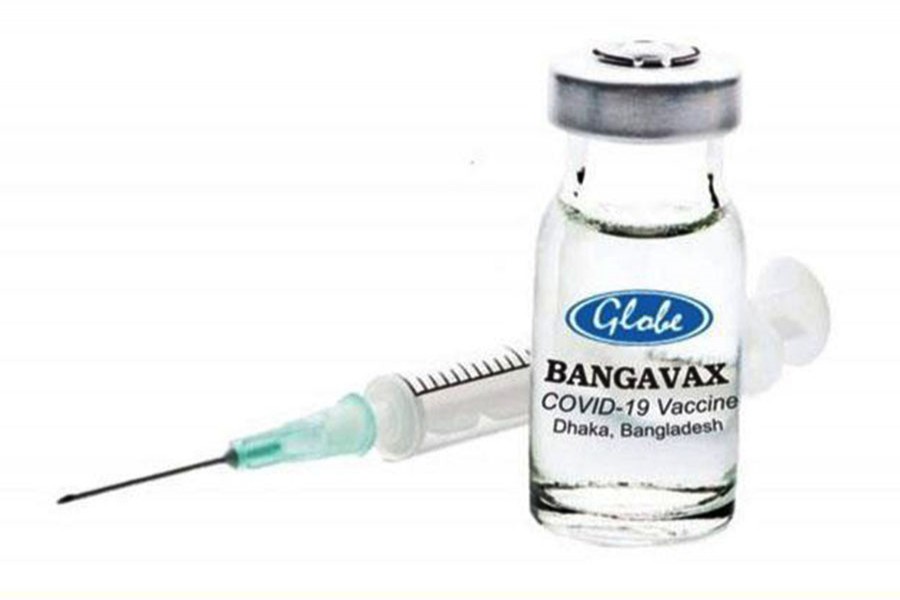The report that the government has finally given the much-awaited ethical permission for the clinical trial of the home-grown anti-COVID-19 vaccine, Bangavax, on humans, is at the same time heart warming and welcome. With this nod of approval from the Bangladesh Medical Research Council (BMRC) to go ahead with the trial, there is yet another step, the final permission from the Directorate General of Drug Administration (DGDA), before beginning the human trial. As the data from the trial on monkeys were reportedly found to be convincing by the BMRC, the DGDA's green signal should desirably be prompt. In fact, the wait for this phase of the trial has been rather long as the local research body, the Globe Biotech Ltd., first applied to the BMRC early this year after successful experiments on mice. Even so, perhaps, to ensure that it is 100 per cent foolproof, the developer of the vaccine, as asked by the BMRC, had to conduct the trial on monkey. As such, it is believed, there would be no further hurdle to cross to start the clinical trial for the vaccine forthwith.
Admittedly, giving official approval for a medical research product as sensitive as vaccine, the need for extreme caution cannot be overemphasised. Even so, since the developer of the serum is a local research body, it merits the highest consideration. And if the trials meet all the basic research criteria, the early recognition of such a product has often proved to be rewarding in terms of life, time and money saved. Since the start of a search for a reliable source of vaccine, Bangladesh has learnt the hard way the need for developing its own capacity for vaccine production. Thankfully, the government has taken measures for producing in the country some vaccines of foreign origin. Apart from that, as soon as Bangladesh acquires the ability to produce its own brand of vaccine, it will greatly reduce uncertainty and our external dependence on foreign-made vaccines. And since the pandemic seems to have come to stay, the case for having an advanced local development and production facility for vaccine has become an imperative. From that point of view, it would not be an exaggeration to say that the locally created vaccine, Bangavax, is a real godsend as it has come in the nation's hour of need. Moreover, the jab, as told by its innovators to the media, will be a cheaper, easily preservable and a single-dose mRNA vaccine and thus promises to be suitable for the local needs and conditions.
The government should, therefore, extend all necessary support to the company behind this local brand of the vaccine, Bangavax. This is to ensure that on completion of the remaining phases of the clinical trial, the company may go into commercial production of the serum as soon as possible. At this point, it is comforting to learn that, if everything goes well, the company plans to go into commercial production of the vaccine from March next year. And to go by the words of the prime minister's adviser for private industry and investment at a press meet that the government intends to go for making the vaccine from next year is further encouraging. Hence, if moves are made simultaneously from the public and the private sectors to manufacture our own brand of the jab, hopefully, those would lead the country to gain self-sufficiency in vaccine in the near future.


